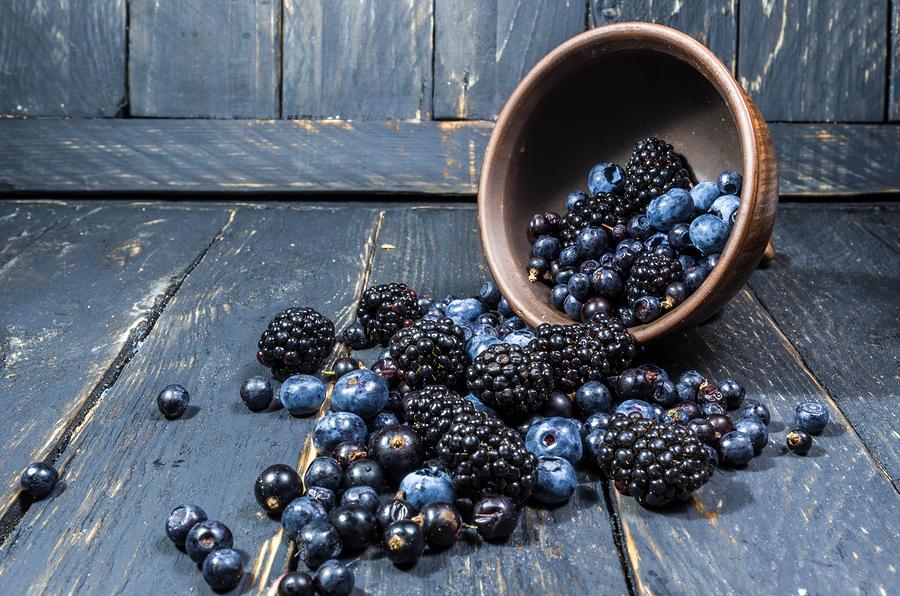The terms ‘antioxidants’ and ‘free radicals’ are ones that you may have heard more and more in the last few years as the health food industry booms. Although you could be forgiven for assuming that they are just more marketing hype, these are actually two important things to bear in mind when you are striving for optimum health.
We all have antioxidants and free radicals inside of us all the time! Let’s take a look at what these things are and how they affect our health.
Free Radicals
Let’s get scientific for a moment! Free radicals are unstable atoms inside of the body that can cause damage to the cells. This can then lead to illness, disease, and visible signs of ageing.
When inside of the body, oxygen splits into single atoms with unpaired electrons. An electron will always want to be paired with another electron, and so these single atoms will travel throughout the body in search of another electron to pair with. These single atoms are known as free radicals, and during their journey around the body to find another electron, they will cause damage to the cells, as well as to proteins and DNA.
Sources of Free Radicals
The substances that cause free radicals to form in the body can come from practically anywhere! Food is a huge source of free radicals, especially the processed and packaged food that is so popular today.
Free radicals can also come from other places, such as medicine, cigarette smoke, and even the air we breathe and the water that we drink!
Free Radical Damage
When too many free radicals present in the body, then a chain reaction of cellular damage can take place. The damage caused by free radicals can also be referred to as oxidative stress, as this is what is taking place when the cells are unable to resist the impact of free radicals.
Several diseases have been linked to free radical damage. Those diseases include (but are not limited to) Alzheimer’s disease, Parkinson’s disease, inflammatory joint disease, lupus, diabetes, dementia, macular degeneration, and cancer.
Free Radical Benefits
Although free radicals do get a bad reputation because of the potential that they have to cause harm, they are also a key part of the natural function of the body. They play an important role in the process of turning food into chemical energy, and also help to support the immune system as they work against harmful invaders in the body. However, the danger presents when free radicals exist in excessive amounts.
It is not possible to know how prevalent free radicals are in your body, but it is possible to work to keep numbers down by consuming adequate amounts of antioxidants.
Antioxidants
Antioxidants are naturally occurring compounds primarily found in plant-based foods.
The body is able to produce a certain amount of antioxidants itself, but we must also consume an adequate amount from dietary sources if we are to help protect our health. This is because the body does not produce an ample amount to tackle the damage that can be caused by free radicals.
These handy compounds help to keep free radicals in check and combat the damage that they cause to the cells.
Best Sources of Antioxidants
There are many different antioxidants and it is helpful to know what they are called so that you can include them in your diet with greater ease. Common antioxidants that you will likely have encountered already are vitamin C, vitamin E, beta-carotene, lutein, and lycopene.
Colourful fruits and vegetables are arguably the best sources of antioxidants. Such as:
- Spinach
- Tomatoes
- Berries
- Artichokes
- Kidney beans
- Nuts
- Plums
- Grapes
- Plums
- Oranges
- Cherries
- Kale
- Brussels sprouts
Exercise and Oxidative Damage
It has been shown through various research studies that high intensity aerobic exercise can cause free radicals to form. This is believed to be due to the chemical reactions that occur when fuel within the body is burnt at the levels required for intense cardiovascular activity.
On the flip-side, regular aerobic exercise can also increase the ability of the body to protect against free radical damage. Additionally, frequent exercise of this nature can help to lower the amount of oxidative stress caused during each session. This suggests that those who exercise often don’t really have to worry about this issue.
When you take into account the other incredible benefits of regularly engaging in cardiovascular exercise, such as weight loss, lower stress levels, improved heart health, and increased bone density, then it is a no-brainer that this is something you should go ahead and include in your routine!
Making Healthy Choices
As you can see, you have the power to help your body combat free radical damage by mking healthy choices – both in relation to your diet and your activity levels.
References
Related Posts
Cigarettes May Inhibit Inflammation Treatments
Axial spondyloarthritis, also known as AxSpa, is a chronic…









